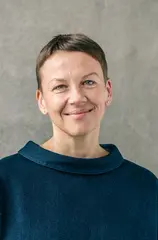Jorge Semprún (1923–2011) was a Spanish writer and survivor of the Buchenwald concentration camp. In his literary work, he repeatedly wrote about his life and survival in Buchenwald and always spoke out against any form of political tyranny. Whether as a writer or Spanish Minister of Culture, he always formulated his vision of a democratic and united Europe, for which he campaigned. In 1994, he received the Peace Prize of the German Book Trade for his life's work. In his acceptance speech, he suggested the establishment of an institution in Germany that would keep alive the memory of the horrors of past dictatorships and strengthen democracy in Europe. The idea for the Ettersberg Foundation is born.
The exhibition was created to mark the 100th anniversary of Jorge Semprún's birth and focuses on his life, which was strongly characterised by the political extremes of the 20th century: As a child, he fled into exile with his family to escape the Spanish Civil War (1936–1939). There, the young communist joined the French resistance and was deported to the Buchenwald concentration camp in 1944. From 1953, he worked underground in Spain against the Franco dictatorship. After breaking with the Spanish Communist Party, he lived in Paris as a successful writer and screenwriter.
As part of the "Education through Democracy" series, Professor Sandra Tänzer from the subject area "Teaching and its Didactics" at the University of Erfurt is planning an event to accompany the travelling exhibition on Tuesday, 9 April from 4 to 6 pm. It will place Jorge Semprún's life in a European context and, in view of the upcoming elections in Thuringia, focus on the importance of pluralistic coexistence and the dignity of the individual. After a guided tour of the travelling exhibition, curator and museum educator Laura Fiedler from the Ettersberg Foundation will talk to participants about Semprún's life and how it can be communicated.
The "Education through Democracy" series has established itself at the University of Erfurt in recent semesters. "In the coming semester and with a view to the elections, it is particularly important to us to discuss the value of democracy and democratic values with students and interested parties through different approaches and events," explains Professor Sandra Tänzer. "We haven't had an exhibition on this yet. I hope that it can also invite reflection, further thought and dialogue beyond the workshop."



